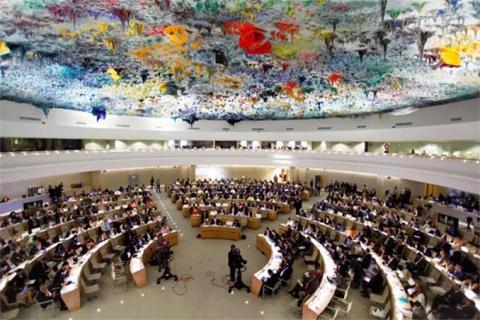
On 11 October 2023, Alkarama submitted its contribution on the human rights situation in Yemen in view of its next Universal Periodic Review (UPR) by the Human Rights Council scheduled between 29 April and 10 May 2024.
Conducted every four and a half years by member states, under the auspices of the United Nations Human Rights Council, the UPR is a mechanism for reviewing countries' human rights achievements.
4th Review of Yemen
During the review, which will take place in the form of a three-and-a-half-hour exchange with the official delegation of the country, attention will be paid to the implementation of the recommendations made in previous cycles.
In this context, Alkarama submitted its contribution in order to draw the Council's attention to the seriousness of the human rights situation in the country, to express its main concerns and to formulate recommendations.
Yemen's duty to cooperate and investigate human rights
In its report, Alkarama recommended that Yemen ratify the various international texts and cooperate in good faith with the various mechanisms of the United Nations. It also recalled the urgent and crucial need to revitalize efforts to establish a genuine international mechanism for the investigation of human rights violations.
Attacks on civilians and blocking of humanitarian aid
Since the beginning of the war, violations of international humanitarian law have been committed by all parties to the conflict, resulting in a large number of civilian casualties. Although the UN-brokered truce agreed in April 2022 between the Houthi rebels and the internationally recognised government led to a significant reduction in violence and casualties, it expired in October without the parties reaching an agreement to extend it.
Sporadic attacks continue to be carried out in constant disregard of the principles of distinction, proportionality and precaution by Houthi forces or by US drones that have already resulted in the deaths of several hundred civilians.
One of the world's largest humanitarian crises continues in Yemen today. The dire situation of the civilian population has been dramatically exacerbated by the sieges and blockades imposed by the various parties to the conflict.
By the end of 2023, 21.6 million people will need some form of humanitarian assistance, with 80% of the country lacking access to food and basic services.
Torture in Custody
Over the years, Alkarama has submitted numerous cases of torture to the United Nations Special Procedures, highlighting a common practice in the prisons of government forces, forces supported by the United Arab Emirates (UAE) and those of the Houthi forces.
These cases demonstrate that torture is widely practiced and takes various forms: beatings, electric shocks, suspension from the ceiling, drowning, threats of violence against detainees' families, and prolonged solitary confinement.
Reprisals against journalists, human rights defenders and political dissidents
Although Yemen pledged to protect journalists and human rights defenders and promote the rights to freedom of expression, peaceful assembly and association during the previous UPR cycle, no significant progress has been made.
Journalists, human rights defenders, and people with real or perceived political affiliations continue to be targeted by parties to the conflict and regularly face arbitrary detentions, enforced disappearances, and extrajudicial executions by Houthi forces and UAE-backed militias.
The Yemeni Journalists' Syndicate documented 92 cases of violations against media outlets, journalists, photographers and their property in different parts of the country between 1 January and 31 December 2022.
Alkarama, which will pay particular attention to the review of Yemen, hopes that a constructive dialogue with the Yemeni authorities will make it possible to address these concerns.
